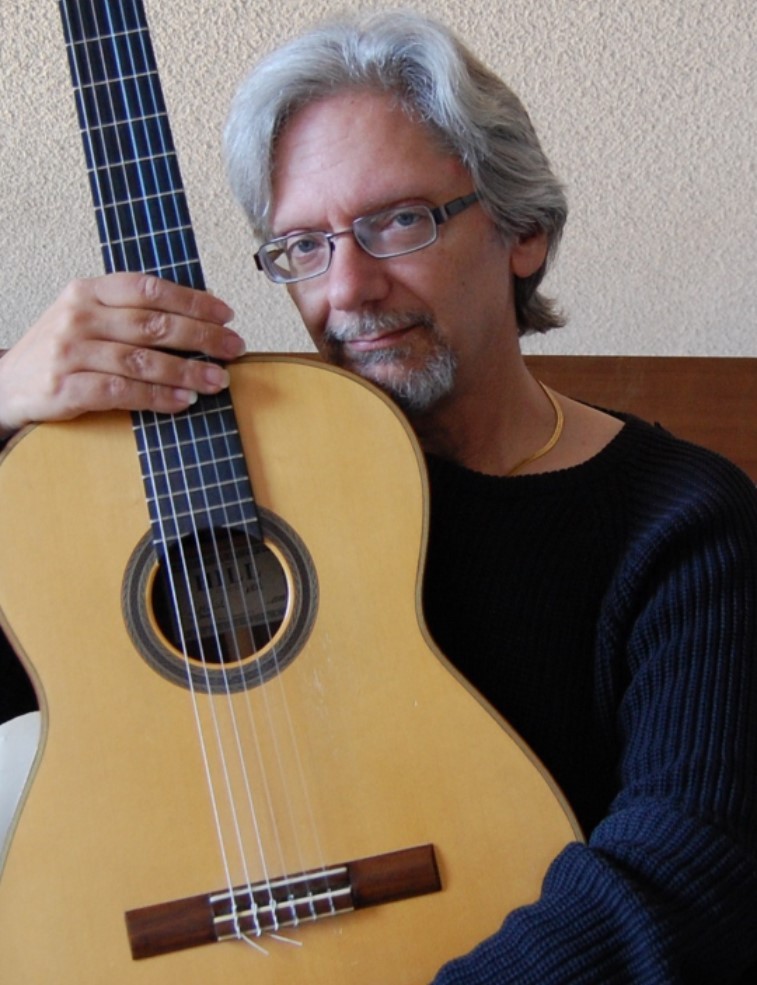We’re excited to introduce you to the always interesting and insightful Michael DeLalla. We hope you’ll enjoy our conversation with Michael below.
Hi Michael, thanks for joining us today. What’s been the most meaningful project you’ve worked on?
It’s funny, every project is the most meaningful when I’m immersed in it. I’m going to refrain from discussing a current one and select the writing of my book “The Mindful Guitarist” (© 2015 Falling Mountain Music). While ostensibly a guitar instruction book, it’s actually a detailed outline of my creative process, told through the allegory of my Yoga practice.
Besides performing and composing, teaching is a major part of my creative life. I teach workshops across the country, where I cover everything from technique to improvisation to composition/arranging for guitar. Over the years, I kept hearing from participants: “Michael, you should write a book!” So–I did. Writing such a book codifying my creative process has had the effect of asking me to live my ‘practice’ every day.
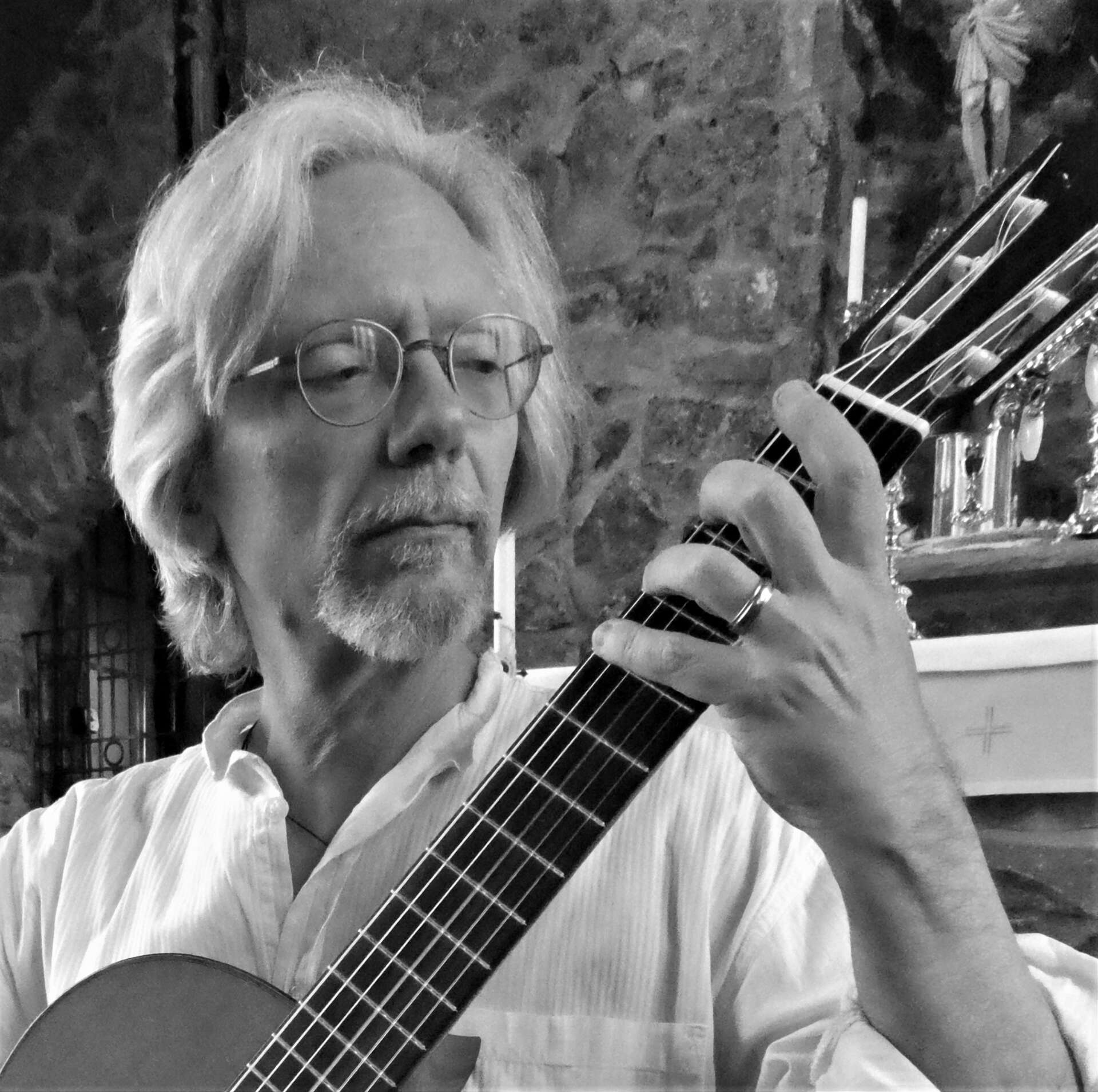
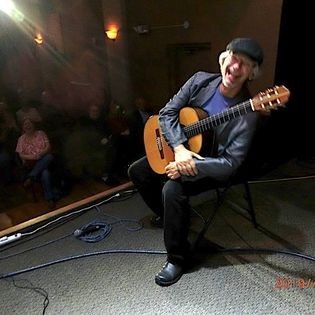
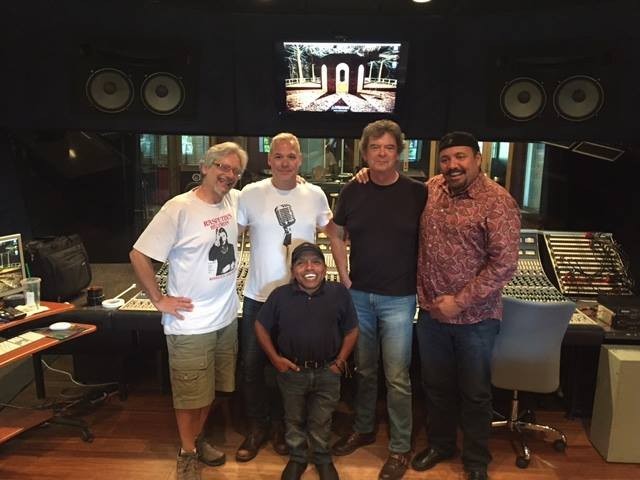
Great, appreciate you sharing that with us. Before we ask you to share more of your insights, can you take a moment to introduce yourself and how you got to where you are today to our readers
I’ve been a professional musician all my adult life: guitarist/composer/producer/teacher/clinician–this is what appears at the top of my 1040 every April. I attended a conservatory for both my undergraduate and graduate studies. While I perform primarily as a solo guitarist on classical, steel-string and 12-string guitars, I’ve also performed in a couple of long-term ensembles. As a composer, I draw upon my immersion in musical traditions found all over the world. It’s my deeply held belief that music–all art, actually–functions on a few artistic principles regardless of its cultural origins–I discuss these in my book: Tension vs. Release, Unity vs. Contrast, and Development.
I view it as my mission to endeavor to share those principles and cultural stories through the voice of the guitar–I often tell my audiences that I hope they brought their passport!. By the end of a concert, when I’m chatting with those who came to listen, it’s apparent that we shared something special, something more profound than a one-way ‘recital’–I’ve always detested that word and its unidirectional connotation of ‘I play/you listen.’ When the energy is flowing back and forth between me and those who came to experience my music, it’s palpable.
This eclectic approach has also served me well as a producer–when an artist is ready to go into the studio, that artist needs someone in the room who gets their music, their instruments, their tradition. There’s nothing more frustrating in a recording session than feeling like the person you’ve hired to realize your vision doesn’t speak your musical language. I strive to find a synergy with that artist. Inevitably, that synergy then flows back into my own music.
And finally, my students get this approach in lessons and workshops. I’m happy to say that I have many former students now forging their own eclectic paths in a lot of different time zones worldwide.
In your view, what can society to do to best support artists, creatives and a thriving creative ecosystem?
For better or worse, it starts at the top.
I saw arts defunding happen in the US in the early 80’s, beginning on the Federal level. That trickled down to states and municipalities–states reduced arts funding in school systems, municipalities’ arts councils lost crucial dollars. The result: we’ve raised an entire generation of citizens who, not having the exposure to the arts I had (in public schools, by the way) don’t value the arts like previous generations. That generation now holds important elected office, and they vote.
This isn’t anecdotal–I was there. I remember being asked to come into the schools in Clarke County VA as part of a music/visual art/writing team, one day a month–that was all the music education those kids got IN AN ENTIRE MONTH.
I’ve been to countries that have a cabinet-level minister of culture–I’d love to see that happen here. I’d love to see the arts funded in elementary, middle, and high school to a much higher degree–instead of ‘STEM’, why not insert an A-for-arts and call it ‘STEAM’. making the arts as vital in education as Science, Technology, Engineering and Math? This will make it easier for municipalities to keep their arts councils thriving.
And in a nutshell–COVID didn’t help, closing venues, forcing musicians to find other ways of making a living.
So–we get to build it again, from the beginning. The sooner we start, the better off we’ll be.
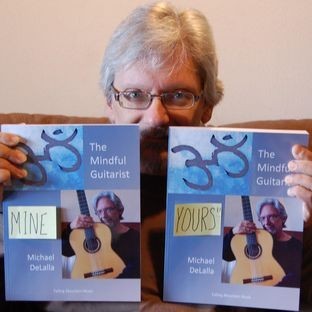

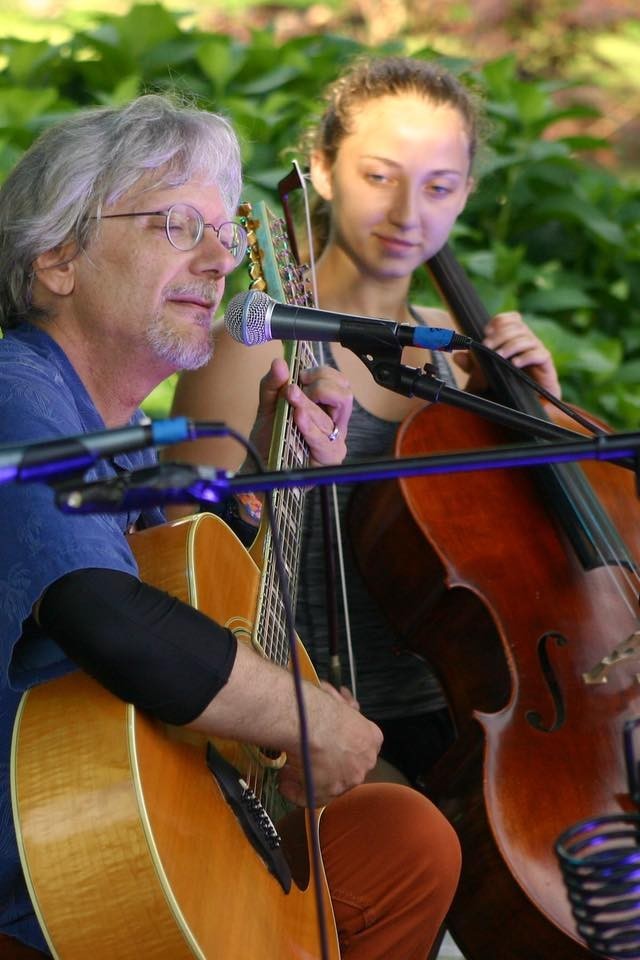

We’d love to hear a story of resilience from your journey.
Many of us have COVID stories–how were we to continue to be artistically relevant during such a shut down that impacted all of society and business?
I pivoted to two alternatives to live performance. First, online teaching and workshops. This was easy–I had already been teaching online for years; I like to say I was Zooming before Zoom was cool. The second was merely good fortune: I landed some fascinating and timely composition commissions.
Each was a beautiful story of reslience beyond my resilience as a creative.
The first: I’m contacted by a woman in a little village in Newfoundland Canada. Her daughter, on the way to immigrating to Australia, stopped to visit Mom in NF just as things shut down. She was stuck in this village, but then falls in love with the village and its people, and they fall in love with her. She decides to stay. The villagers, in turn, wanted to show their appreciation and love by writing her a song, but didn’t know how. When I was told the story I said “I will do this at the absolute lowest fee I can, because I love this story.”
The second, I was contacted by a woman who had lost a baby during the pandemic. Also a performing artist, she wanted to make a video performance of the Argentine masterpiece “Alfonsina y el Mar”, a song that is also about loss. She asked me to arrange it for the two of us to perform, since her far-flung family could not gather to mourn together, due to COVID.
Finally, another resilient performer, a well-known classical guitarist, learned last year that she had to cease performing due to a degenerative condition in her right hand. She could, however, use a pick. She commissioned me to write a piece for her that allowed her to use a pick instead of fingers. I remembered that this guitarist had years ago introduced me to the beautiful playing of Anouar Brehem, an oud master from Algeria. I wrote a piece that evokes the oud and utilizes a plectrum in the manner that the oud does, and dedicated it to the guitarist who introduced me to this wonderful tradition–completing the circle.
Contact Info:
- Website: www.fallingmountain.com
- Instagram: @michaeldelalla_guitarist
- Facebook: www.facebook.com/michael.delalla
- Linkedin: www.linkedin.com/in/michael-delalla-guitarist
- Twitter: @MichaelDeLalla
- Youtube: www.youtube.com/fallmtn


